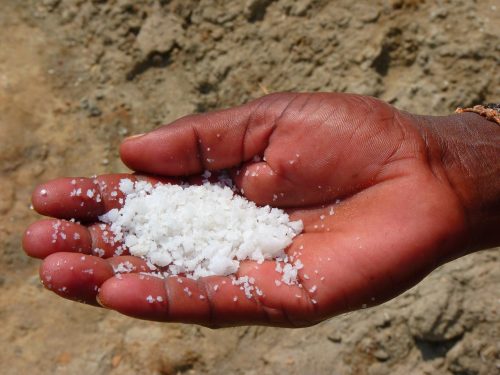The common explanation is that the most sweating in the summer, which causes the loss of sodium, will also cause us to consume more salt. The new study showed that in Israel this does not happen

Despite the common explanation, according to which there is an increased consumption of salt during the summer, a new study conducted at the University of Haifa found that there are no differences in salt consumption between winter and summer in Israel. "The importance of research in an increased understanding of the causes of salt consumption among the population, which is an important health issue. Much effort is being invested by the Ministry of Health and Medicine to reduce salt consumption, so that the better we understand the causes of its consumption, the better our ability for an improved nutritional balance will improve," said Prof. Micha Leshem, a bio-psychologist from the Department of Psychology at the University of Haifa who conducted the study.
In studies done in the past, it was found that among populations living in the desert, the consumption of salt is high, and this is probably because salt helps prevent dehydration. Also, according to conventional wisdom, the great sweating during the summer that causes the body to lose salts, as well as the excessive drinking that also lowers the percentage of salt in the body, means that during the summer we will consume more salt than in the winter. According to the researcher, this belief is so entrenched that in the United States, for example, the official recommendations for sodium consumption in the summer take for granted the fact that in the summer we consume more salt. In practice, to date no research has been conducted that examined the effect of seasons or climate on salt consumption.
In the current study published in the journal Appetite and in which 140 students participated, Prof. Nehem asked to test the effect of the summer heat on salt consumption. The study took place in Haifa when the summer temperature was 10 degrees higher than the winter temperature. The subjects were tested both in winter and summer. For the purpose of the experiment, the subjects were asked to refrain from eating and drinking beverages other than water for two hours before the test. In the test, different methods of salt consumption were tested, such as the amount that the subjects add to the soup, the dietary intake of sodium, the degree of salting of various foods, preference for salty appetizers and psychophysical tests to measure the sense of taste of salt. At the same time as these tests, the preference for the sweet taste was also tested as a check to make sure that the changes found would not be general to the sense of taste, but unique to the salty taste.
The results of the study show that the seasons have no effect on salt consumption. It was also found that water consumption does not differ by season, and the preference for sweet actually decreased in the summer. "It is possible that the similar consumption of salt in winter and summer is due to little exposure to the real climate due to the prevalence of air conditioning in our environment," said Prof. Leshem.

3 תגובות
Adding salt to food is an artificial and unnatural practice.
Man naturally does not need any addition of any salt to food, the amount found naturally in fruits, vegetables, meat, milk and water is above and beyond what the body needs.
The excess sodium from the salt burdens the kidneys which are not built to deal with such amounts of sodium, the sodium competes with the potassium in the body and causes a lack of this mineral.
Excess salt in food is one of the causes of kidney diseases, hypertension and more...
Most of us eat too much salt. Perhaps the reason we do not adjust the level of consumption to the season is high consumption habits and insensitivity to the needs of the body, and not inventions in an air-conditioned space as suggested at the end of the article.
Sodium is a poisonous metal!
Therefore, it is not clear why repeatedly "experts" talk about "sodium consumption",
People consume salt, non-sodium salt,
Just like eating almonds does not "consume" cyanide,
Or like eating an orange does not "consume" citric acid,
Whoever repeats "sodium intake" instead of saying salt in an attempt to sound sophisticated
I'm so excited!